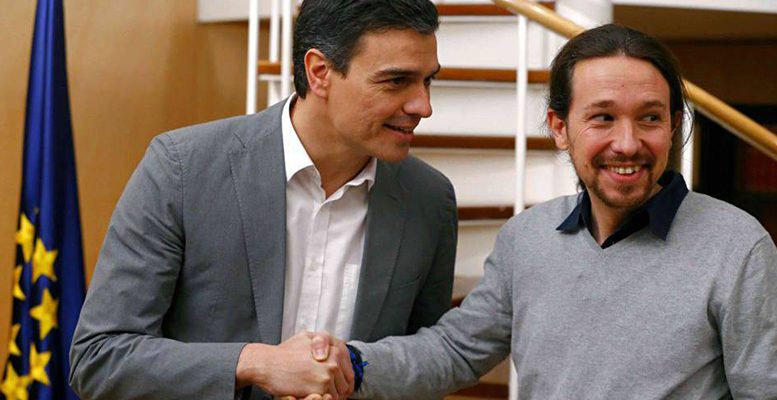Fernando González Urbaneja | A decade ago now, in the midst of the 2008-12 recession, that of the financial crisis which was more than that, the so-called “15M” movement emerged in Spain and “Occupy WS” in New York. They proclaimed loudly, chanting slogans such as: “they don’t represent us”, “they call it democracy and it isn’t”, “Take the square”, “PP and PSOE it’s the same shit”, “no home, no job, no pension, no fear”, “get angry”… An amendment to the whole, a rectification of the system and the model. This resulted in the emergence of new parties that tried to represent a new politics without corruption, with participation, with attention to people and their needs.
In many cases, these new parties were built on the residue of old parties. This is the case of Podemos, a party that was articulated amongst various “circles” which came to present another politics. Its electoral successes are historic, as were those of its Greek predecessor, but also ephemeral since it has not yet come of age. A rocket with little fuse but a lot of noise.
The negotiation to form an Andalusian coalition to the left of the PSOE provides evidence that the promise of “new politics” has remained in the old politics (which has a whiff of old, outdated or unfashionable) that it was meant to replace.
What the semi-failed coalition of a large part of the Andalusian left has debated is the distribution of power and money. How to compose the lists and how to distribute electoral subsidies. In order to force a favourable negotiation at the last minute, the state leadership of Podemos delayed its agreement, so tightening the rope that it broke. They did not arrive in time to register the coalition, a procedural flaw (damned formalist bureaucracy!) which can be rectified but which weakens the emergence of Podemos while strengthening the other partners. And particularly the experienced PCE, dressed up as IU, which attracted the greatest scorn from the founders of Podemos who came from the militancy they denounced as old.
It is obvious that Podemos is still a political force with five ministers, 34 deputies (fourth parliamentary group) and an important regional and municipal representation. What will Podemos’ position be when the current electoral cycle comes to an end with a general election in January 2024 at the latest? If it depends on the will and design of its current non-militant leader (Yolanda Díaz) there will be little left, it will be replaced by another brand and another model of left-wing movement sustained by the old PCE, which is the one providing the foundations. A plural model of families sharing power with a traditional leadership, from Iglesias to Díaz. Very old.





